Search Results
Showing results 1 to 16 of 16

Battleships: Searching Algorithms
Source Institutions
This activity explores the main algorithms that are used as the basis for searching on computers, using different variations on the game of battleships.

Guess My Number
Source Institutions
In this math activity, learners play a game similar to 20 Questions, in which learners must identify a secret number drawn from a bag.

The Poor Cartographer: Graph Coloring
Source Institutions
In this activity, learners help a poor cartographer color in the countries on a map, making sure each country is colored a different color than any of its neighbors.
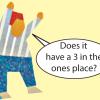
Mystery Number
Source Institutions
Combine logic and numbers in this game for all ages. Players start with a 10x10 grid of the numbers 1 to 100. One person chooses a secret number and announces the range in which it falls.
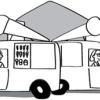
Tourist Town: Dominating Sets
Source Institutions
In this activity, learners use a fictitious map of "Tourist Town" and counters to problem solve how to place ice-cream vans on street intersections so that every other intersection is connected to one
Narrow It Down: Asking Yes-No Questions
Source Institutions
In this activity, the learner asks yes-no questions to identify a secret object (similar to Twenty Questions). This game is easy to adapt for different ages and different kinds of contexts.
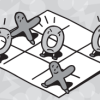
Toe-Tac-Tic
Source Institutions
In this activity, learners play a game similar to Tic-Tac-Toe. In this version, learners try NOT to get three-in-a-row. The player who gets three-in-a-row first loses!

Katta Villayatu
Source Institutions
In this activity, learners play a game from India similar to Tic-Tac-Toe. Players take turns placing coins on the game board and sliding the coins along the spaces.

Circle Logic
Source Institutions
This is a deceptively simple game to teach strategy, planning, and pattern analysis. In this game, learners take turns removing tokens from a board, and develop a plan to take the last piece.
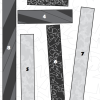
Paper Puzzle
Source Institutions
In this math activity, challenge learners to make two equal rows from eight different paper strips. Learners can explore the many ways they can solve this problem.
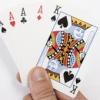
Two Sets!
Source Institutions
In this card game, learners make two sets of three cards that are alike. Learners must justify to the rest of the players why the three cards belong in each set.
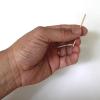
Toothpick Patterns
Source Institutions
In this hands-on activity, learners use toothpicks to build different triangles and squares and then use the toothpicks to build and solve some tricky shape puzzles.
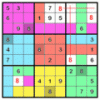
Color Sudoku
Source Institutions
The popular sudoku puzzles use numbers, but the game could played with any set of 9 different objects!
Squeeze Me!
Source Institutions
In this math activity, learners guess a secret number between 1 and 100 in a three-player game.
Magic Turtle Squares
Source Institutions
In this math activity, learners create a magic turtle where all the rows, columns and diagonals add up to fifteen.
Narrow it Down: Numbers
Source Institutions
In this activity, learners will ask yes-no questions to identify a secret number (similar to Twenty Questions). Combine logic and numbers in this game for all ages.
